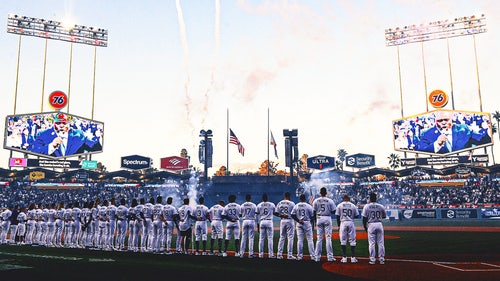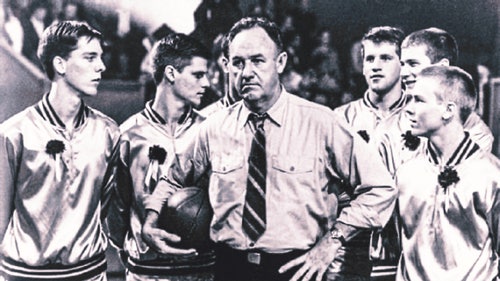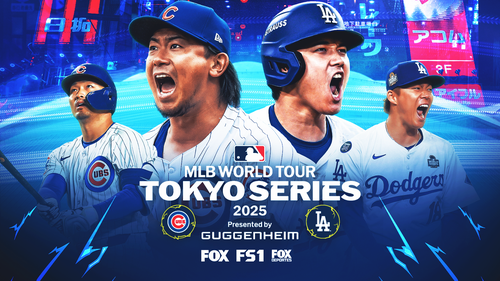
Griffey still exudes confidence
Only one thing matters, and it’s not whether Ken Griffey Jr. is napping in the clubhouse.
It’s whether Griffey can still play.
Griffey says yes. His statistics suggest otherwise. And the Mariners are caught in a trap of their own making, a trap from which there is no easy escape.
Stick with Griffey and the M’s might remain stuck with the worst designated hitter production in the American League.
Release Griffey and the M’s will risk offending not just a future Hall of Famer, but also their biggest legend and most beloved figure.
The solution, if Griffey fails to come around, is for the team and player to find an appropriate middle ground — a midseason retirement that would allow Junior to depart with the dignity and respect that he deserves.
Griffey, 40, says he will know when his career is over, but that he has not yet reached such a conclusion.
“If I didn’t feel like I could do it, I wouldn’t do it — simple,” he told me Tuesday before the Mariners’ 5-1 victory over the Orioles.
You expected him to ask for his release?
A team is never more uncomfortable than when it is trying to ease out a fading superstar at the end of his career. But the Mariners hardly merit sympathy for being in this position.
They bought into one more year of Griffey. They believed that they could build off his successful return to the franchise last season and yes, make some more money off his name.
Never mind that the team’s OPS at designated hitter in 2009 was the fourth-worst in the American League. The M’s promptly scheduled five promotions around Griffey prior to the All-Star Game, viewing his $2.35 million salary as an investment toward future reveunues.
The first two promotions — Ken Griffey Jr. “The Kid” Bobblehead Night and Ken Griffey Jr. “The ’95 Slide” Bobblehead Night — produced crowds of 40,001 and 37,602, the Mariners’ largest of the season other than Opening Day.
Problem is, the team is a major disappointment, below average in OPS for an AL club at every position but center field, and last or next to last at second base, third, catcher and, yes, designated hitter.
Think David Ortiz is struggling? Griffey is batting .200/.264/.225, with no home runs in 80 at-bats. Toward the end of his group interview session Tuesday, I asked him if retirement had crossed his mind.
“I’ll figure it out when I get to that point,” he said.
Might it come during the season, someone else asked.
“I’ll figure it out when I get to that point,” he repeated.
Later, I approached Griffey alone to continue the conversation. Some might say his answers reflect an athlete in denial. But the great ones only become great because of their unshakable confidence in their talents.
I asked Griffey, Will you know when it’s time?
“Yeah,” he said, “pretty much.”
A lot of great players don’t, I replied. You know that.
“Pretty much,” Griffey repeated.
How do you feel at the plate?
“I’m just trying to get my timing,” he said. “Would they be saying this if I had a home run? Probably not. Do I worry about it? No.
“You look at Cincinnati (in 2007). Hell, I didn’t have a home run until the end of April, and I played every day. I still hit 30 that year. And the story then was, what is the matter with Junior?”
The difference is that Griffey is older, in a different phase of his career.
“No,” Griffey said.
Could he still hit 30?
“Yeah,” Griffey said, smiling. “If they mess up 30 times.”
He continued, “I think people are so obsessed with, ‘He has hit 600 home runs, he’s not hitting home runs, something is wrong.’ I’m just trying to do small things and big things come.”
So, obviously, he thinks his skills are still there.
“If not, then it would be time to go,” Griffey said. “But you’re going to have people who say, ‘He’s not doing this, he’s not doing that.’”
At that point, I asked Griffey if he was uncomfortable being such a focal point when his main goal is for the team to win.
He responded with a calm yet firm indictment of the fantasy-baseball mentality that — in Griffey’s opinion — has altered fans’ perceptions of how the game should be played.
“If I hit a ball to the second baseman and the guy scores or the guy goes from second to third and the next guy drives him in, that doesn’t show up in the box score, but it shows up in the ‘W’ column,” Griffey said. “That’s the most important thing.
“People have gotten into fantasy sports. It’s really changed the way everyone looks at the sport. Everybody is in the locker room for one common goal. That’s to win ballgames.
“You might, of course, want your individual stats. But you get the same (teammates) coming up to you when you ground the ball to second and the guy scores as you do if you’d gotten a single and the guy scored. That’s what people have lost.
“When you have an argument, you argue what? ‘This guy’s stats are this.’ That’s all they care about it. ‘This guy’s stats say this.’ Well, this guy actually helped that guy get this. People are so interested in their fantasy drafts, things like that, they’re not concerned about the big picture. And that’s helping the team win.”
At that point, I redirected Griffey toward the central question, the one that matters most.
Can he still play?
It was then that Griffey said, “If I didn’t feel like I could do it, I wouldn’t do it.”
The great ones never go easily, yet Griffey’s career need not end in acrimony, if indeed the end is near.
The Mariners need to be compassionate. Griffey needs to be realistic.
For once, let there be a graceful way out.










